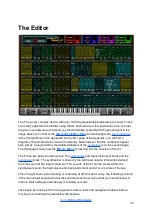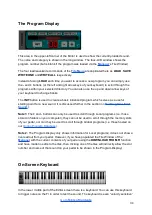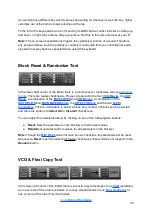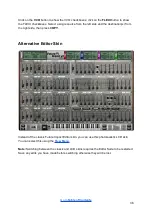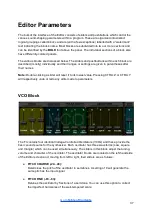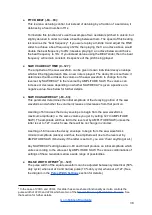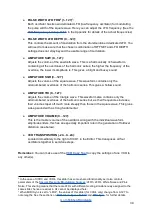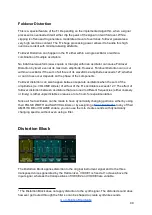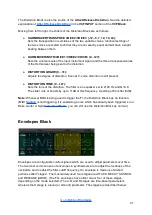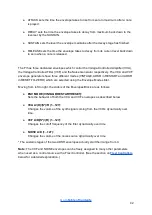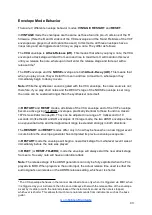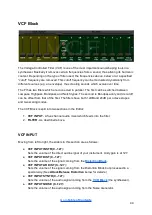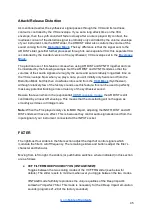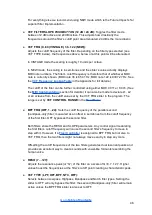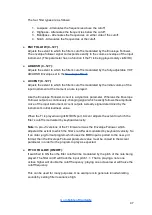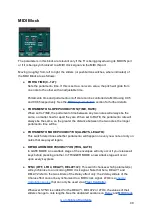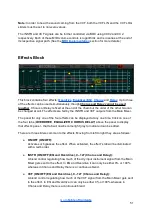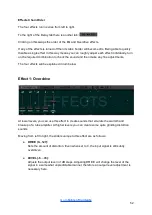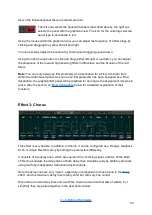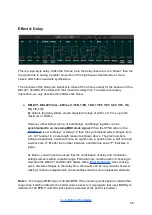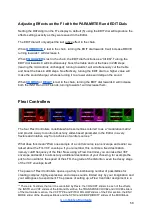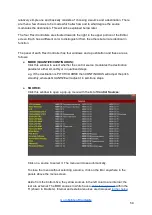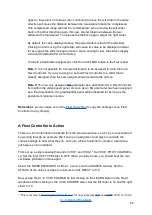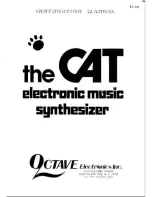
The four filter types are as follows:
1. Lowpass - Attenuates the frequencies
above
the cutoff;
2. Highpass - Attenuates the frequencies
below
the cutoff;
3. Bandpass - Attenuates the frequencies
on either side of
the cutoff;
4. Notch - Attenuates the frequencies
at
the cutoff.
●
ENV FOLLOW (0...127):
Adjusts the extent to which the filter’s cutoff is modulated by the Envelope Follower.
The envelope follower signal corresponds exactly to the volume envelope of the input
instrument. (This parameter has no function if the FI is being played solely via MIDI.)
●
AD/ADSR (0...127):
Adjusts the extent to which the filter’s cutoff is modulated by the fully-adjustable VCF
AD/ADSR Envelope set in the
●
ACCENT (0...127):
Adjusts the extent to which the filter’s cutoff is modulated by the initial volume of the
input instrument at the moment a note is played.
Like the Envelope Follower, Accent is a dynamics parameter. Whereas the Envelope
Follower outputs a continuously-changing signal which exactly follows the amplitude
curve of the input instrument, Accent outputs a steady signal determined by the
instrument’s initial loudness value.
When the FI is played using its MIDI IN port, Accent adjusts the extent to which the
filter’s cutoff is modulated by keyboard velocity.
Note:
In pre-v3 versions of the FI firmware it was the Envelope Follower which
adjusted the extent to which the filter’s cutoff was modulated by keyboard velocity. So
if an older
.prg
-format program which uses the MIDI input is ported to the new
.pr3
format, then the Envelope Follower parameter value must be copied to the Accent
parameter in order for the program to play as expected.
●
PITCH FOLLOW (ON/OFF):
If switched to ON then the filter cutoff will be modulated by the pitch of the note being
played. The filter cutoff will track the input pitch 1:1. That is, playing a note one
octave higher will double the cutoff frequency; playing one octave lower will halve the
cutoff frequency.
This can be used for many purposes. One example is to generate tuned whistling
sounds by setting filter resonance high.
47

